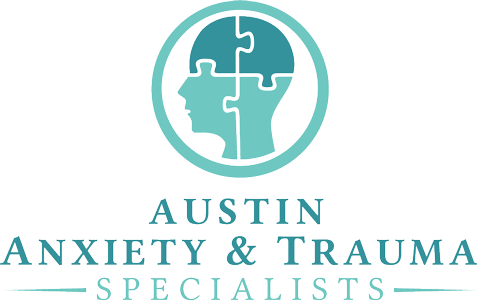[et_pb_section fb_built=”1″ _builder_version=”4.16″ global_colors_info=”{}”][et_pb_row _builder_version=”4.16″ background_size=”initial” background_position=”top_left” background_repeat=”repeat” collapsed=”off” global_colors_info=”{}”][et_pb_column type=”4_4″ _builder_version=”4.16″ custom_padding=”|||” global_colors_info=”{}” custom_padding__hover=”|||”][et_pb_text _builder_version=”4.24.0″ background_size=”initial” background_position=”top_left” background_repeat=”repeat” custom_css_free_form=”h2{|| background-color: #6ec9c2;||}” global_colors_info=”{}”]
Does this sound familiar? A coworker asks how you’re doing and you respond, “I’m fine, how about you?” Depending on your tone, “I’m fine” might’ve meant:
I’m doing better!
I’m not happy, but I’m okay.
I’m not sharing how I’m really feeling.
Many people go to therapy to finally feel fine after a long period of suffering, while for others, feeling fine is not so great. Maybe you’re considering therapy for the first time but feel you don’t have a “big problem,” or maybe you’ve been feeling “fine” after going to therapy for a few weeks and think that’s good enough.
But therapy can help you feel more than fine. And it’s not only for people with mental health issues.
You’ll understand yourself better.
As you talk with your therapist about your past, present life, and hopes for the future, you will come to understand yourself more deeply. Sometimes, it can be difficult to face what you discover. Self-acceptance is a life-long journey for some people, but therapists can guide you more effectively. Therapists can also help identify negative behavior patterns in your life and self-destructive thought processes. Through specialized forms of treatments like Cognitive Behavioral Therapy (CBT), you will learn to make long-lasting habit changes to control negative thinking. All the better to accept yourself, and have compassion for who you are and where you’re at in your journey.
You’ll have healthier relationships.
Before every airplane takes off, passengers are reminded to put on their own oxygen mask first before helping others. Relationships take emotional energy, and pouring into others when your own cup is near empty will leave you feeling drained, tired, and not yourself. Therapy maintains your mental health, so you can be the best version of you for yourself and for your partner. It can also benefit relationships practically.
When you know yourself better, you’ll be able to understand why you react the way you do to social conflicts. There could be undiscovered trauma in your past preventing you from managing conflict in a healthy way and holding you back from deeper relationships. A therapist might prescribe Eye Movement Desensitization and Reprocessing (EMDR), an effective therapy for trauma relief. Or, you could need support understanding and communicating your feelings with your loved ones. For those who struggle expressing themselves and do not have a mental disorder, both talking with a therapist and treatments like CBT can improve communication to help you feel happier in your relationships.
Your physical health will improve.
Yes, talk therapy isn’t only for the mind! Pessimism is proven to increase risk of illness, but psychotherapy has the opposite effect. Harvard researchers found a positive correlation between optimism and cardiovascular health, showing decreased risk in heart attacks, strokes, and lower blood pressure. One study proved the efficacy of CBT and various psychological therapies on other physical illnesses like migraines, symptoms of cancer and chemotherapy, chronic pain, rheumatic diseases, and irritable bowel syndrome. The stress-relieving effects of CBT also were suggested to contribute to higher birth rates in a study of couples who struggled with infertility.
When your mind is healthy, so will your body be.
You’ll be prepared to manage crises.
Medication is essential for some people, but it doesn’t erase problems. A person on antidepressants will still experience some low days, because we can’t control what the world throws at us. What we can learn to control is our reaction to a crisis. And this needs to be managed before tough times hit.
In a video game, you wouldn’t want to battle monsters without first developing your fighting character’s skills and tools. You’ll need special armor, weapons, and battle moves first. The longer you play a game, the more techniques you develop, and the better you get at using them. Therapists also want to equip you with the right life-coping skills to handle life’s monsters, whether it’s the day-to-day challenge of getting up in the morning, managing your relationships, or getting through unexpected traumatic events.
You’ll know someone who cares is in your corner.
Contrary to popular belief, therapy isn’t just for when “something’s wrong.” Yes, you can go to therapy just to talk to someone you trust.
Talking to friends about personal issues isn’t always the most effective. They may be biased, have their own issues to worry about, or offer faulty advice. And the process of understanding our own emotions well enough to articulate is messy. We fear what is most raw about us is unappealing, unattractive, or burdensome to others, and this prevents us from opening up to friends and even ourselves.
Unlike your friends, a professional therapist is able to be objective when hearing you out. You can feel safe to share your uninhibited thoughts and work through what you’re feeling without filtering. You don’t have to have it all figured out, either. Your therapist wants to talk with you and work through your feelings with you. Your therapist wants to be in the room with you. Your therapist wants to listen to you. They will not judge you. Your therapist cares about you.
We care. And we’re ready to support you whether you feel fine or not.
Don’t know how you’re feeling? That’s okay too. Schedule an appointment with one of our therapists at Austin Trauma and Anxiety Specialists and we’ll start the conversation. We’re here to help.
[/et_pb_text][/et_pb_column][/et_pb_row][/et_pb_section]






